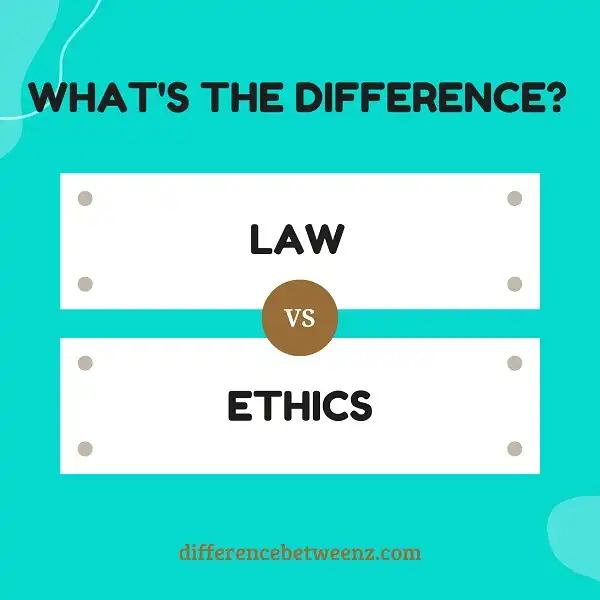When it comes to the legal profession, there is a fine line between law and ethics. On one hand, you have the law – a set of guidelines and regulations that must be followed in order to maintain order in society. On the other hand, you have ethics – a system of moral principles that help to ensure that people act with integrity and honor. While both law and ethics are important in the legal profession, they serve different purposes. Let’s take a closer look at the difference between law and ethics, and how each plays an important role in upholding justice.
What is Law?
Law is a system of rules that are created and enforced through social or governmental institutions to regulate behavior. It has been defined both as “the Science of Justice” and “the Art of Justice”. Law is a system that regulates and ensures that individuals or a community adhere to the will of the state. State-enforced laws can be made by a collective legislature or by a single legislator, resulting in statutes, by the executive through decrees and regulations, or established by judges through precedent, usually in common law jurisdictions.
Private individuals can create legally binding contracts, including arbitration agreements that may elect to accept alternative arbitration to the normal court process. The formation of laws themselves may be influenced by a constitution, written or tacit, and the rights encoded therein. The law shapes politics, economics, history, and society in various ways and serves as a mediator of relations between people.
What is Ethics?
Ethics refers to the study of morality and the principles that guide human conduct. It is concerned with questions about what is right or wrong, good or bad. Ethics also refers to the specific code of conduct that upholds these values. A person who adheres to a particular ethical code is said to be “ethical.” Ethics is a branch of philosophy that seeks to understand and articulate the nature of morality.
It typically focuses on questions about the justification of moral beliefs and practices. Ethics has been traditionally divided into three main areas: meta-ethics, normative ethics, and applied ethics. Meta-ethics deals with the nature of morality itself. Normative ethics explores how moral beliefs should be formed and how they should guide our actions. Applied ethics applies these principles to specific issues in fields such as business, medicine, law, and public policy.
Difference between Law and Ethics
- Law and ethics are two terms that are often used interchangeably, but they actually refer to two different concepts. Law is a system of rules and regulations that society creates to govern itself.
- Ethics, on the other hand, refers to moral principles or values that guide individuals in their everyday lives. While law and ethics may overlap in some areas, they are ultimately two distinct systems of thought.
- There are a few key ways in which law and ethics differ. First, laws are created by an external authority, whereas ethical principles are typically internalized by individuals. Second, laws are coercive, meaning that people must comply with them or face punishment.
- Ethics, on the other hand, are voluntary and can be followed or disregarded without any consequence. Finally, laws are relatively stable and unchanging, while ethical values may evolve over time.
- Despite these differences, there is also a lot of overlap between law and ethics. Many laws are based on ethical principles, and people who break the law often do so because they believe that their actions are morally justified. Additionally, both law and ethics can be used to promote social good and protect individual rights.
Conclusion
In order to stay on the right side of the law, it is important for businesses to understand the difference between law and ethics. The examples we have given should help illustrate some of the key distinctions. Of course, this is just a basic overview and there are many nuances that must be considered when making ethical decisions.


